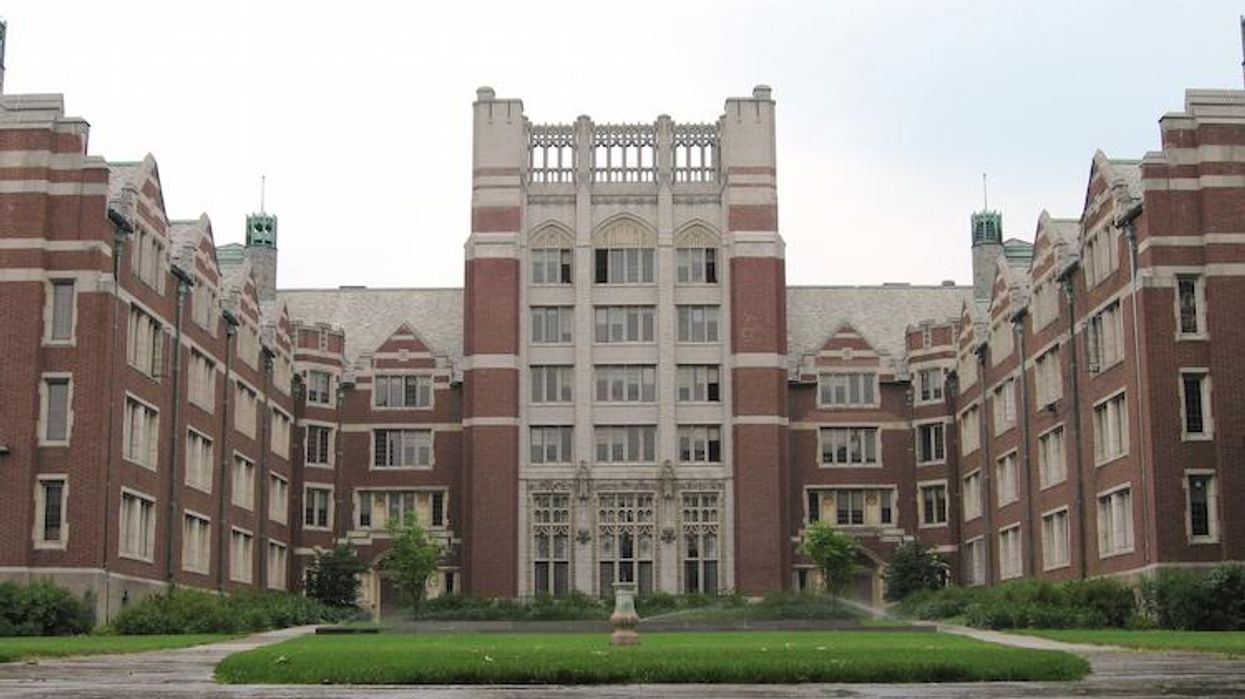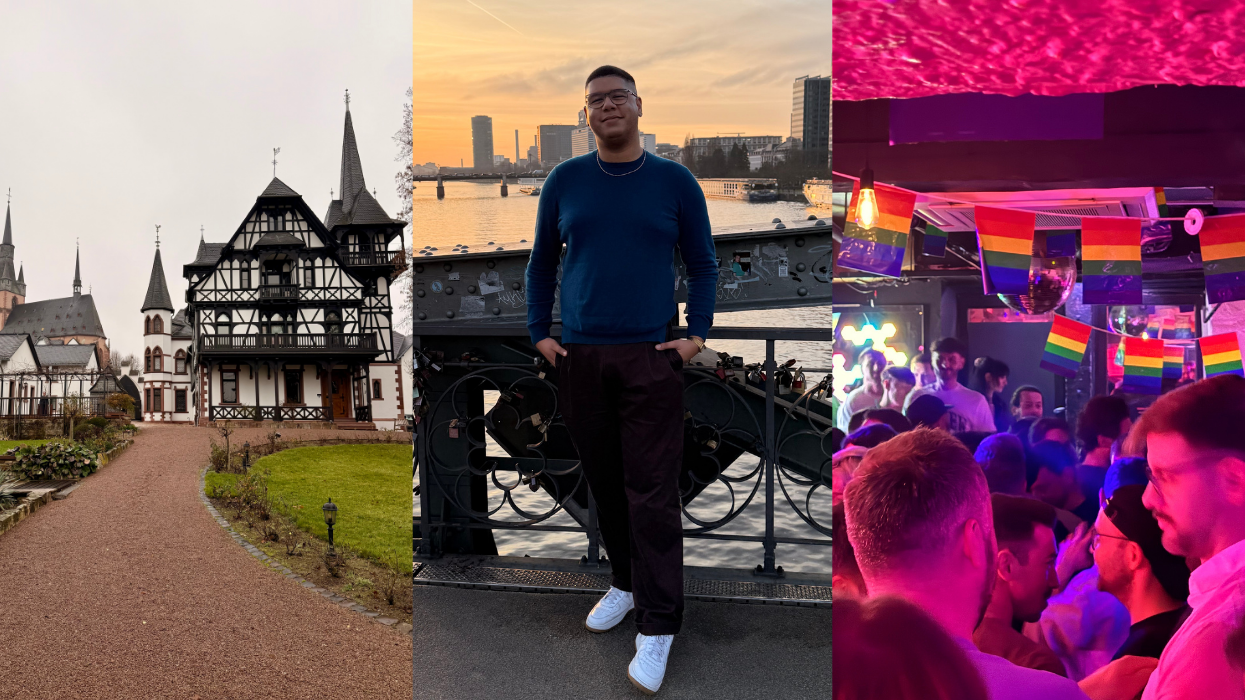Photo via WikiCommons/Jared and Corin
On June 2, the all-women's Barnard College announced a new policy to allow transgender women to apply for admission. The culmination of much debate, the decision was hailed as a major victory for trans rights in America. Barnard was the last of the Seven Sisters Colleges--the prestigious group of those all-women or formerly all-women universities historically attached to Ivy League institutions--to make the change.
As the nation celebrates our historic marriage equality victory, it's important to remember that many members of our community still face discrimination on a daily basis. College admissions is just one aspect of the equation that needs addressing when it comes to progress for transgender people, according to Professor Richard Greggory Johnson III of the University of San Francsico.
Out spoke with the Professor, a leading voice for progressive university policies in the United States, shortly after Barnard's new policy was announced.
Out: Where does your interest in this issue stem from?
Professor Johnson: I'm what's called a social equity scholar, so that means I focus on issues of race, gender, sexual orientation, gender identity and social class. I've known people in my past who are transgender and I believe that it's one of the last great areas of civil rights that we have to attend to.
Smith College has recently adopted a new policy in regards to transgender admissions, with Barnard College making a similar move just yesterday.
Yes, that is correct. Of course, there have been other institutions exploring similar admissions policies, so I would argue that the Seven Sisters Schools are kind of late to the game in tackling this issue. For example, my own institution, the University of San Francisco, has been tackling transgender issues for the last 8 years. What's interesting about that is that we're a Catholic institution, yet we're on the forefront of doing these things. And if a Catholic institution is on the forefront of transgender matters, then the other institutions like Smith and Barnard are late to the game. But nonetheless, we're so glad that they're coming around.
Do you think that, given their high repute and academic caliber, that the Seven Sisters Colleges adopting these policies will affect other women's schools?
I do. That's generally how things go. Once one institution starts to do something, then others will typically get on board at one point. I do think there will be a trickle down effect.
Of the big women's schools that have adopted these policies, Mount Holyoke's is the most all encompassing, allowing anyone who was assigned female at birth or identifies as female or intersex to apply. How typical is their admission policy? Do you think their standards will eventually be adopted by other schools?
Well actually, I do. Institutions don't operate in silos, contrary to belief. They're always looking at other institutions to find out what's going on. So I think there will be similar policies across the board--and again, not only at women's colleges, but at all colleges.
What are some of the issues that co-ed schools are dealing with concerning transgender students?
One of the most important for transgender students is the creation of safe spaces on campus once they're admitted to the institution. So that means having unisex restrooms. At the University of San Francisco, the board of trustees just passed a new policy a month or so ago in which a student can use their preferred name, which is a huge victory for our transgender student population on campus. And I believe most--I certainly can't speak to all--but I would think that most forward thinking universities in the 21st century are trying to make policies that are inclusive of transgender students.
Regardless of the institution or what part of the country they're in, we want to ensure that student can be their authentic selves. That's a huge thing. And so for example, again, at my own instution, we have a zero tolerance policy. That means that if any student, regardless of gender identity or whatever other identity, is subject to discrimination by another student, then action is taken immediately. So these are the basic foundational types of things that I think are important for us to look at as a higher education society.
You said that your institution has been working through transgender policies for eight years. This past year in America has been massive for transgender issues and awareness--it's been called the "transgender tipping point." Concerning these issues, do you think that things are moving faster within academic spheres or is it about the same as we see within society as a whole?
You know, that's a really interesting question. Because what we do know about higher education tends to be conservative and moves at a slower pace. I do think there are certain institutions that come to the dance a little bit quicker than others. For example, the University of San Francisco tackled the challenges dealing with transgender students for years simply because a number of our students identified as transgender, and any institution worth their salt certainly wants to make sure that their students are receiving the best education and experience at that institution. I know that Mills College, another women's college in the Bay Area, has been doing wonderful things about transgender matters for the past several years. But you don't really hear about this in higher education until some of the more well-known institutions like Smith or Barnard start to address them.
Another massive piece of news this month was Caitlyn Jenner on the cover of Vanity Fair. I think a lot of people were surprised by how overwhelmingly positive the reaction was to that. What do you think that says of where we are as society in regards to transgender issues?
Well, I think it's like anything else--society eventually comes around. One of the things that our society does, and does well for the most part, is to integrate matters of importance into media. So as transgender issues play out on television shows and movies, I think more and more people will come around and have a greater understanding of what it means to be transgender. So I do think there's greater acceptance now. The times change. I talk about transgender issues in almost all my classes and it's amazing how much the students get involved with the conversation. I've been teaching about transgender matters for at least the last 10 years and I have never received any kind of push back. But then again, it's about being authentic. I could not say that I'm a social equity scholar and not be on the side of what is right. Having an individual be their authentic self is right. And every community needs an ally, and that is right. At the end of the day, I believe that more and more people in higher education want to be on the side of what is considered right.
Going forward, what needs to be done?
Well, I would couch my comments within academia, but that would be rather limiting. So I would argue that for larger society, we as a society need to create more inclusive policies for our transgender individuals, and protections as well. Because to be transgender, a person can still be assaulted or worse, and often times the perpetrators are not called to justice. There needs to be greater dialogue at the national level. And often times, society doesn't push forward on these kinds of matters until someone famous puts a name to it. For example, during the 1990s, HIV wasn't addressed--not really--until Magic Johnson came out. So I think we will need individuals that have a name in society to come out and say that they are trans, and share their experiences. And we are seeing that, with people like Laverne Cox, Janet Mock, and Caitlyn Jenner. I would hope, as I go further along in my career, that I could move on from teaching about what it means to be transgender to some of the triumphs of the transgender community.
Professor Richard Greggory Johnson III teaches at the University of San Francisco. For more information on the program he is involved with, Social Justice with a Master's in Public Administration, visit the degree's website.






























